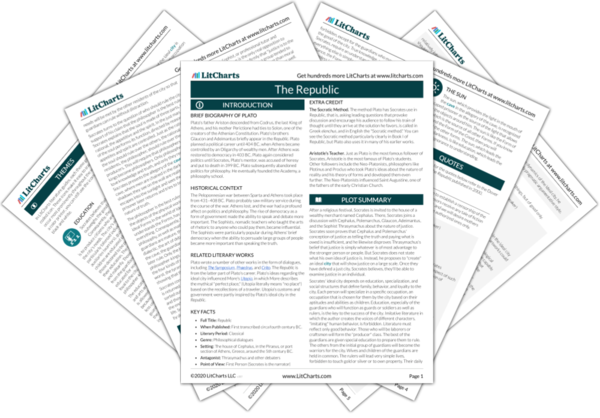The main speaker, a philosopher who leads his audience and dialogue partners to conclusions by carefully structured questions. Sometimes Socrates' verbal agility makes it difficult to see that he is avoiding answering the question he is asked and is instead addressing something else entirely in his responses. Socrates strongly influenced Plato. In the Republic Socrates is usually acting as Plato's stand-in.
